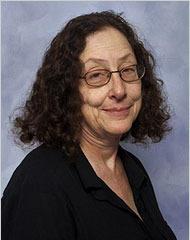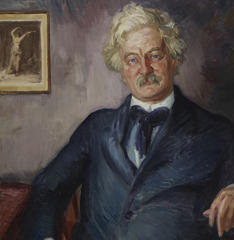Ralph Waldo Emerson Quotes about Children
Respect the child. Be not too much his parent. Trespass not on his solitude.
Ralph Waldo Emerson (2004). “A Dream Too Wild: Emerson Meditations for Every Day of the Year”, Unitarian Universalist Association of Congregations
Ralph Waldo Emerson, Joel Porte (1982). “Emerson in His Journals”, p.277, Harvard University Press
Sorrow makes us all children again - destroys all differences of intellect. The wisest know nothing.
Ralph Waldo Emerson, Joel Porte (1982). “Emerson in His Journals”, p.277, Harvard University Press
Ralph Waldo Emerson (1983). “Essays and Lectures”, p.505, Library of America
We find delight in the beauty and happiness of children that makes the heart too big for the body.
Ralph Waldo Emerson (1981). “The Portable Emerson: New Edition”, p.276, Penguin
Ralph Waldo Emerson (2013). “Delphi Complete Works of Ralph Waldo Emerson (Illustrated)”, p.2745, Delphi Classics
Ralph Waldo Emerson (2013). “Delphi Complete Works of Ralph Waldo Emerson (Illustrated)”, p.2955, Delphi Classics
Ralph Waldo Emerson, David Mikics (2012). “The Annotated Emerson”, p.521, Harvard University Press
Ralph Waldo Emerson (2012). “Self-Reliance and Other Essays”, p.76, Courier Corporation
Ralph Waldo Emerson (1983). “Essays and Lectures”, p.260, Library of America
Ralph Waldo Emerson (1870). “The Prose Works of Ralph Waldo Emerson”, p.164, Рипол Классик
Ralph Waldo Emerson (2015). “Emerson's Essays: Top Essays”, p.96, 谷月社
Ralph Waldo Emerson (2015). “Emerson's Essays: Top Essays”, p.43, 谷月社
Ralph Waldo Emerson (1969). “Journals and Miscellaneous Notebooks of Ralph Waldo Emerson, Volume VII: 1838-1842”, p.171, Harvard University Press
Ralph Waldo Emerson (1971). “The Collected Works of Ralph Waldo Emerson: Society and solitude”, p.53, Harvard University Press
Ralph Waldo Emerson (1971). “The Collected Works of Ralph Waldo Emerson: Society and solitude”, p.129, Harvard University Press
Ralph Waldo Emerson, Robert Ernest Spiller, Alfred Riggs Ferguson, Joseph Slater, Jean Ferguson Carr (1971). “The Collected Works of Ralph Waldo Emerson: English traits”, p.155, Harvard University Press
We are the children of many sires, and every drop of blood in us in its turn betrays its ancestor.
Ralph Waldo Emerson (1971). “The Journals and Miscellaneous Notebooks of Ralph Waldo Emerson”, p.240, Harvard University Press
Ralph Waldo Emerson, Joel Porte (1982). “Emerson in His Journals”, p.373, Harvard University Press
Ralph Waldo Emerson, Barbara L. Packer, Joseph Slater, Douglas Emory Wilson (2003). “The Conduct of Life”, p.75, Harvard University Press
Ralph Waldo Emerson (2008). “The Spiritual Emerson: Essential Works by Ralph Waldo Emerson”, p.43, Penguin
Ralph Waldo Emerson (2005). “The Selected Lectures of Ralph Waldo Emerson”, p.51, University of Georgia Press







